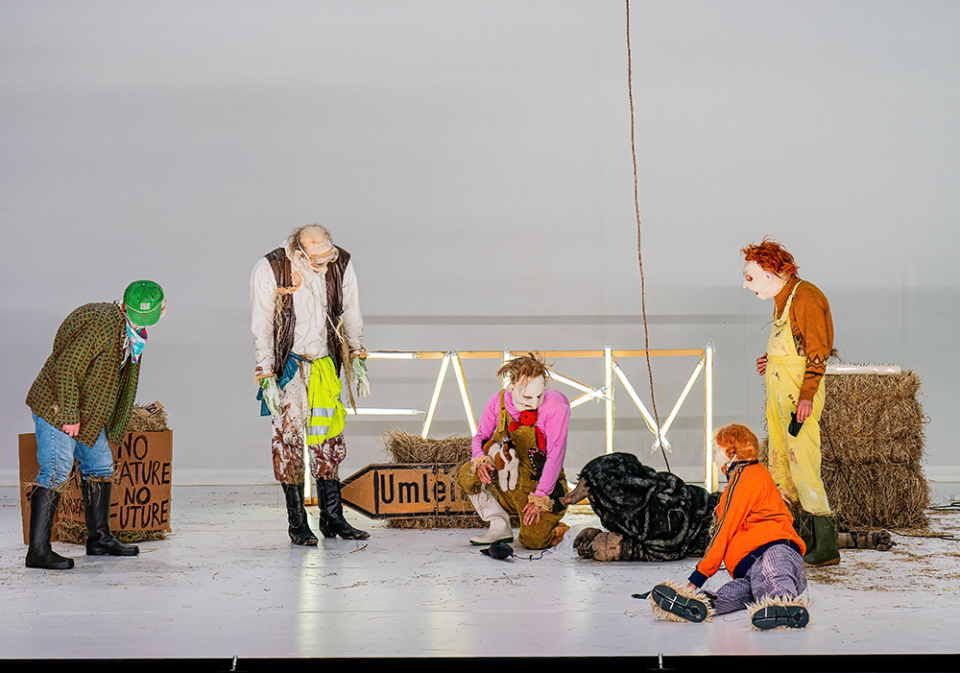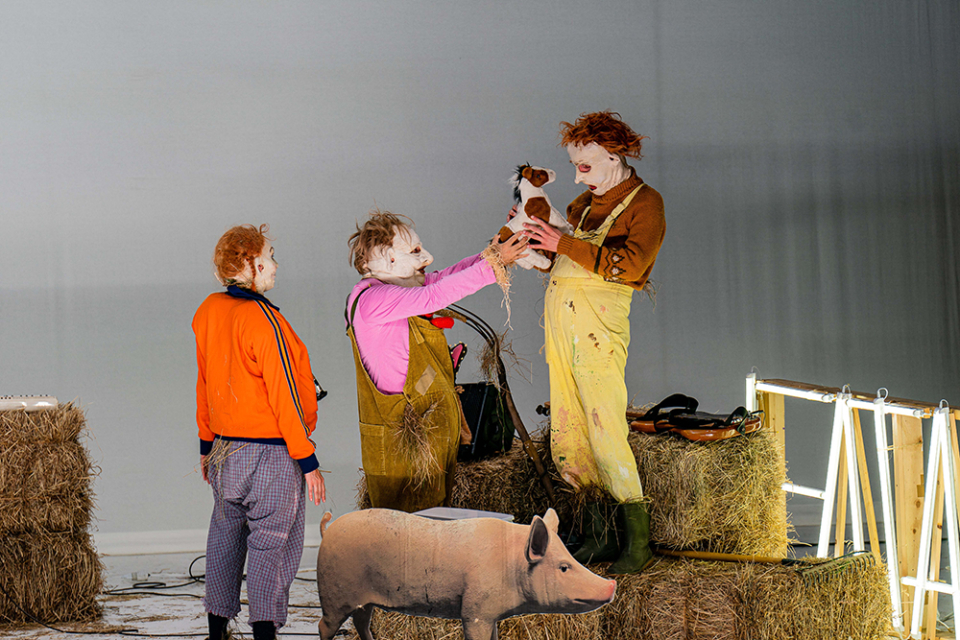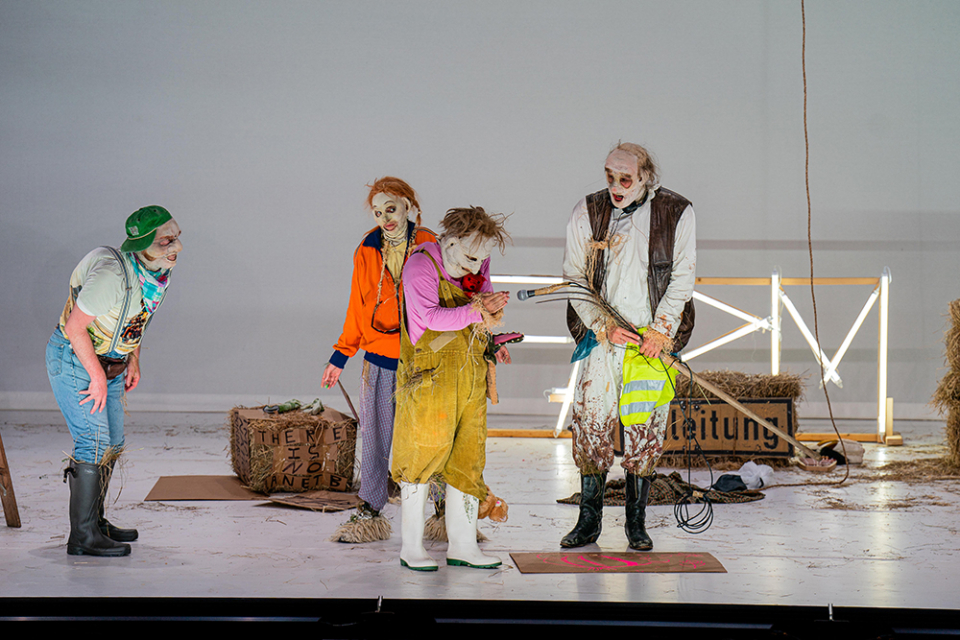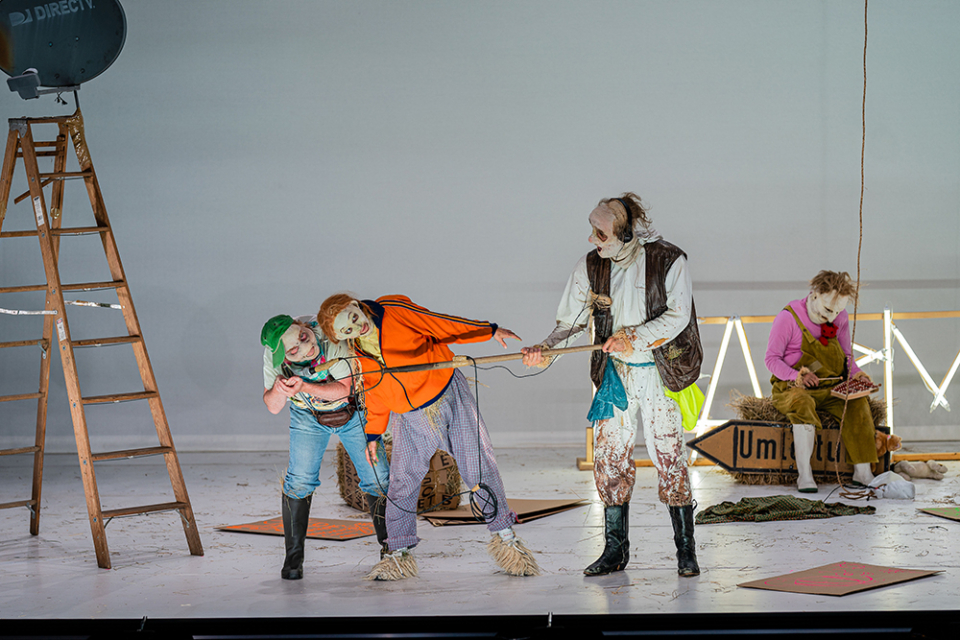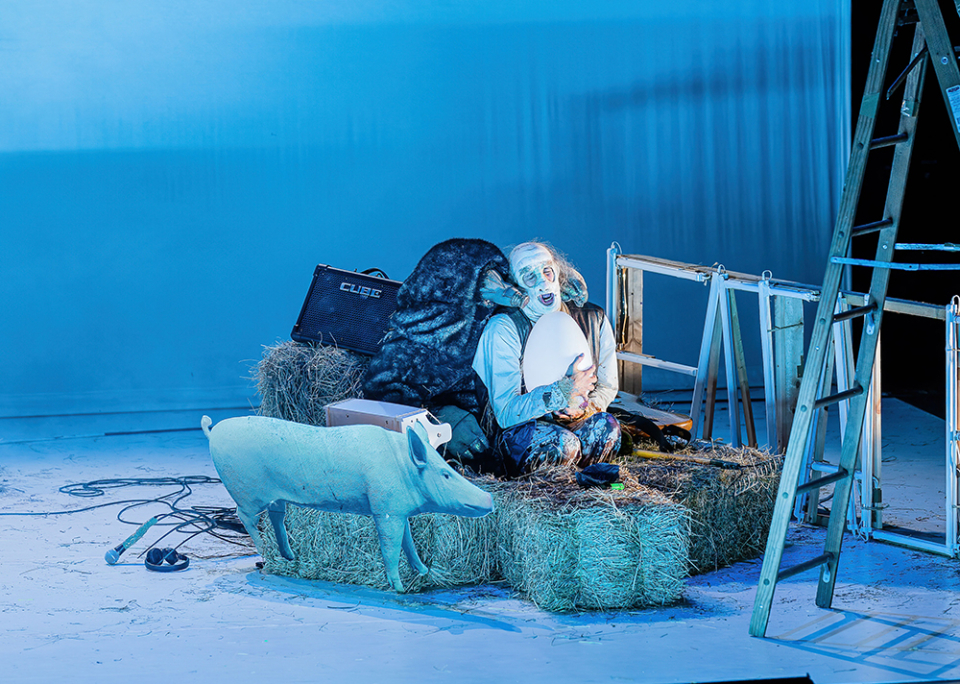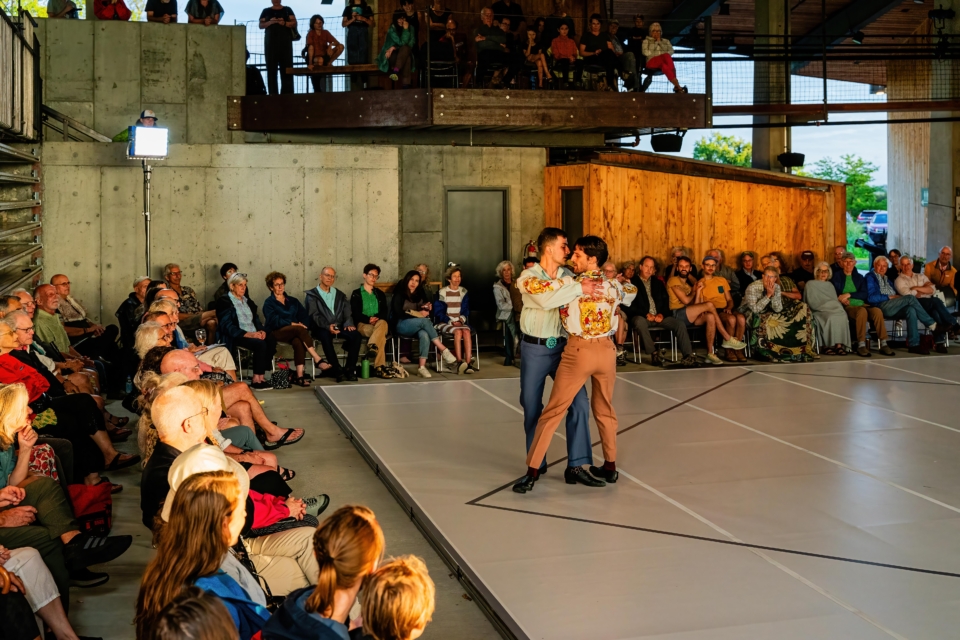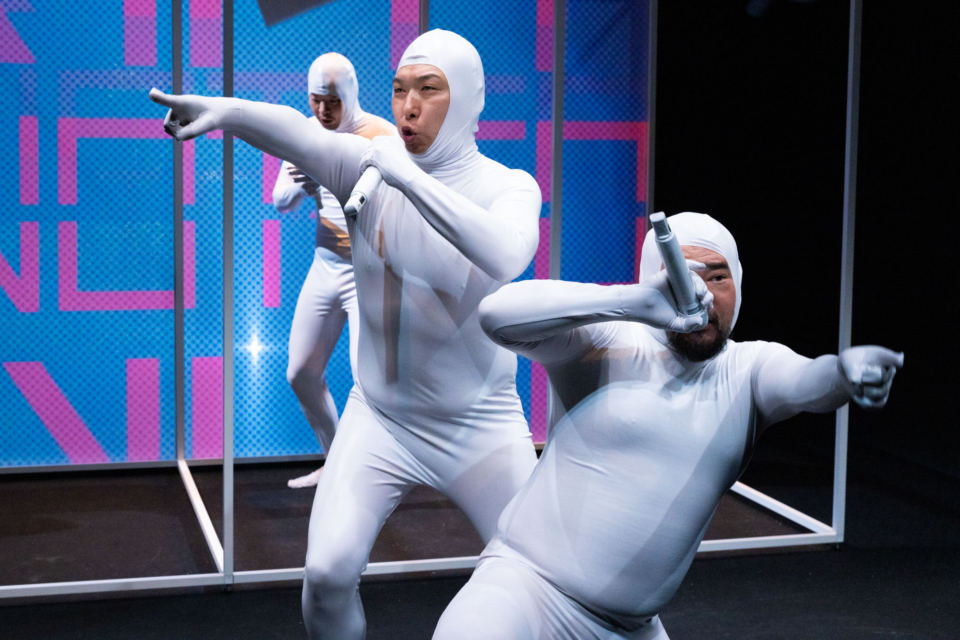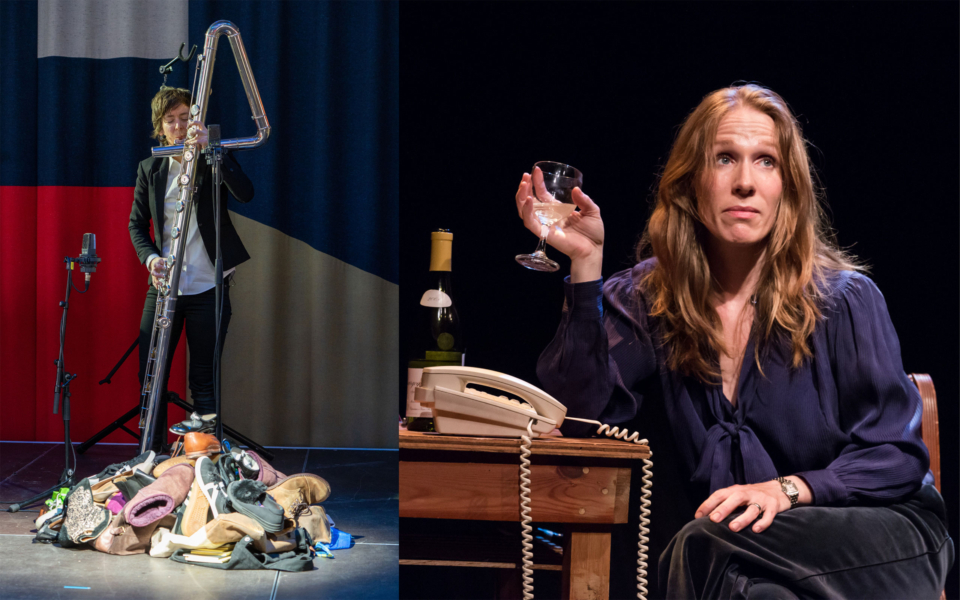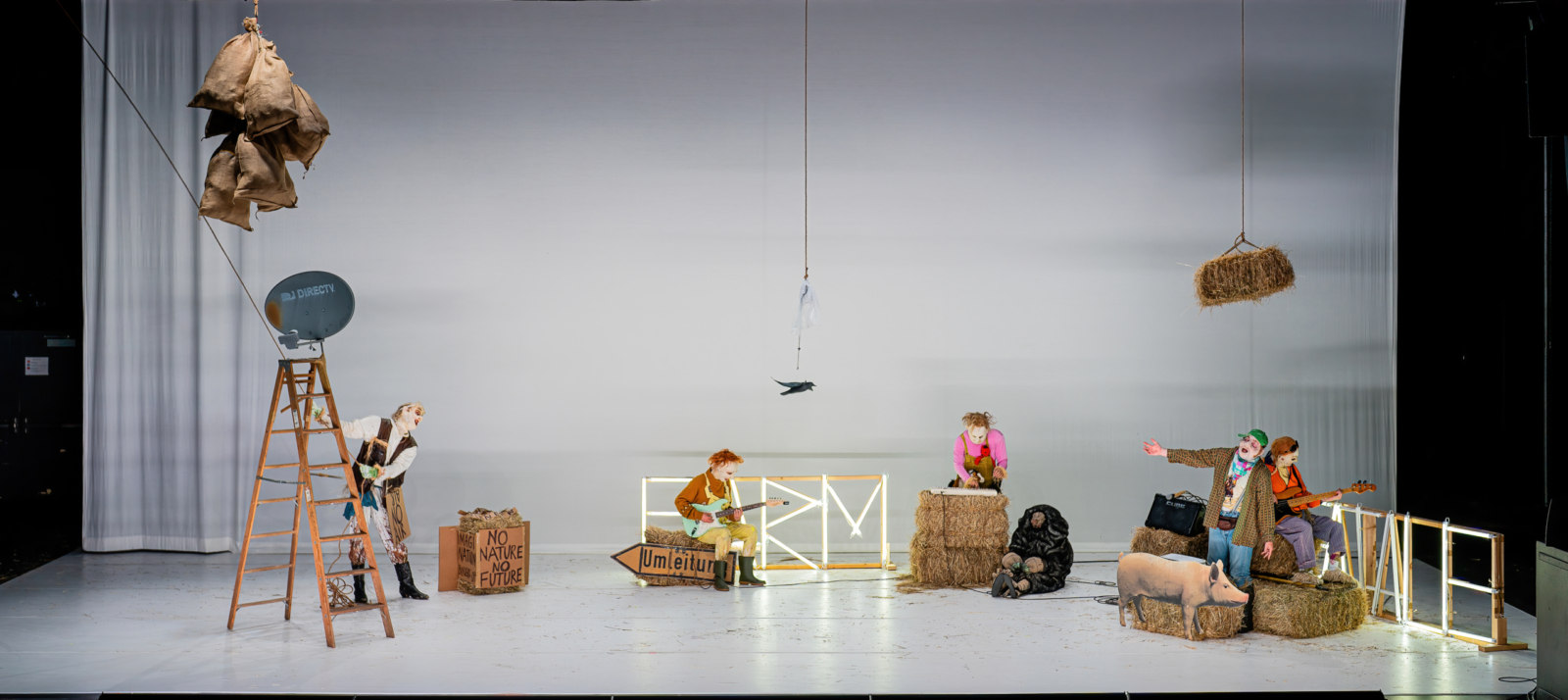
In this eco-futurist fable, birds have gone extinct, and five scarecrows find themselves out of work. Taking up the challenge of restoring life on earth — they archive, investigate, make music and seek ways to save what can be saved. The scarecrows contemplate the fragile beauty of our terrestrial ecosystem, and in the process are transformed into dreamers, poets, and activists in a quest for a kinder, less harmful future for the planet.
Philippe Quesne’s play marries activism and art to create an unforgettable theatrical experience. Farm Fatale is a dramatic tightrope act that balances mirth and melancholy, tenderness and catastrophe, irony, and magic. Refusing to succumb to despair, this postapocalyptic spectacle celebrates the restorative power and sublime beauty of nature, treating the prospect of the end of the world at a moment when its survival hangs in the balance with the delicacy and humor of musical comedy. A poetic meditation on the urgent ecological and political issues of our day, a vision of our devastated present and our hope of creating a sustainable future. In North America, Farm Fatale is being performed only at PS21.
Quesne’s Farm Fatale is a natural choice for PATHWAYS, PS21’s multi-disciplinary public initiative that features free performances, arts and environmental education workshops, circus and processional arts, participatory events, and installations.
A scarecrow has, by nature, all the time in the world, but what happens when the “future” has been reduced to a chimera, when crops, insects, and birds are only vaguely remembered vestiges of a vanished past? The scarecrows flap idly in the wind, waiting for something that will no longer return. They find themselves in a pristine, clinical and plastic space, where even the bales of straw have something false and purely artificial about them. Despite the grim prospects, there is something in scarecrow being that rejects entropy. Refusing to be discouraged, they forage for what remains of nature, listening to the ideas of a bee—bereaved by the disappearance of flowers, they set up a pirate radio station to broadcast bird songs—worry about the denuding of the earth, talk to any creature they can find, and against all odds, begin to form plans. No matter how beaten down they are, they’re ready to defend any life forms that survive.
Philippe Quesne’s plastic and musical universe has grown even bolder since it was originally produced at Munich’s Kammerspiele. He has composed a dystopian comedy where non-humans inherit the mantle of humanity and struggle to resist ecological disaster as best they can. Funny and optimistic—or absurd and anxious, depending on where you stand—this game of swapped identities invites us to imagine other ways of living together.
Trained as a visual artist and set designer, Quesne’s works for theater conjures a realm where dream and reality coexist. His “darkly hilarious” plays, about our often quixotic efforts to create institutions that will make survival possible (The Guardian), employ minimal dialogue that conveys subtle but portentous political and social messages, have toured internationally to critical and public acclaim. From 2014 to 2020 Quesne was Director of Le Theatre des Amandiers, the National Dramatic Center in Nanterre, one of France’s leading dramatic centers, and is now director of the Ménagerie de Verre in Paris, a research laboratory and performance space for innovative practice in dance and theater.
“If you believe in magic, then we can agree [Philippe Quesne] is a magician.”
Alexander Graham Roberts, Programme Director, Iceland University of the Arts.
In The Moles, Quesne invites audiences into a parallel universe where there are no humans and no words. In this mysterious underground world, larger-than-life moles are the architects of something between a processional utopian spectacle and a punk rock band. One of Quesne’s signature creations, the moles are a flexible art form, becoming whatever you want them to become, from cute selfie opportunities to staunch political agit-prop. Have fun, or dig deeper for the truth, whatever you like. The moles interrogate possible realities with the brusque movements of their paws and leave you to draw your own conclusions.
Concept, scenography, direction Philippe Quesne
Scenography Assistant Nicole Marianna Wytyczak
Costumes Nora Stocker
Masks Brigitte Frank
Technical Direction François Boulet
Lighting Pit Schultheiss
Sound manager Félix Perdreau
Sound Robert Göing, Anthony Hughes
Directing assistants Jonny-Bix Bongers, Dennis Metaxas
Dramaturgy Martin Valdés-Stauber, Camille Louis
Performed by Sebastien Jacobs (role created by Stefan Merki), Léo Gobin, Nuno Lucas (role created by Damian Rebgetz), Anne Steffens (role created by Julia Riedler), Gaëtan Vourc’h, Thomas Suire
Production Münchner Kammerspiele, Théâtre Nanterre-Amandiers
Touring production Vivarium-Studio, Charlotte Kaminski
Moles Thomas Suire, Léo Gobin, Sébastien Jacobs, and Gaëtan Vourc’h
The presentation of Farm Fatale by Philippe Quesne at PS21 is made possible with the support of FACE Contemporary Theater, a program from Villa Albertine and the FACE Foundation.





